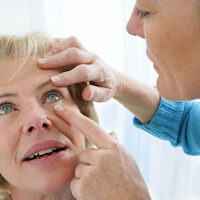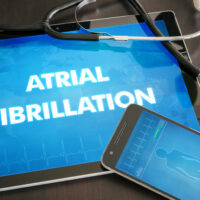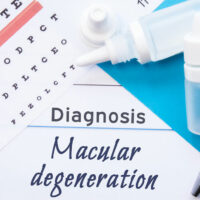7 warning signs of schizophrenia

Schizophrenia is a severe and debilitative mental illness that adversely affects a person’s thoughts, behavior, and interaction with their surroundings. In its advanced stages, people with this condition lose touch with reality. While the exact causes of this condition are not yet known, healthcare experts believe that a combination of altered brain chemistry, genetics, and one’s immediate environment are responsible for it. Here are some of the common signs of schizophrenia one should not ignore:
Withdrawal
People with schizophrenia prefer to stay isolated all the time. Typically, when someone enters a room with a person who has schizophrenia, it can provoke a negative reaction, such as anger, irritation, or fear. Essentially, this condition reduces a person’s capacity to relate to others. In one of its initial stages, known as the prodromal phase, people tend to have an abrupt preference to be left alone. This means that schizophrenic individuals will suddenly, in the middle of social interaction, feel the need to isolate themselves from a crowd. Schizophrenia brings about a feeling of vulnerability in people when they are around others. Many patients mention feeling like an outcast in the middle of a sea of people.
Hallucinations
This symptom is characterized by schizophrenic people hearing sounds, feeling things, or seeing sights that do not exist. It is not uncommon for a person with this condition to see dead people or historic figures standing in front of them or hear voices in their heads. Hallucinations result from schizophrenia affecting the brain to the degree that an individual’s five senses are distorted. Normally, auditory hallucinations, such as hearing someone miles away speaking in their ears is the most common occurrence in people with this condition.
Such visions or sounds are usually personal or deeply meaningful to those who see or hear them. For example, a person with schizophrenia may see and hear an angry parent yelling at them. This tends to reflect something that may have happened in their childhood or recent past.
Usually, hallucinations tend to be negative, such as critical, vulgar, or abusive imagery or sounds, and they further worsen when a person experiencing them is all alone.
Detachment and distracted behavior
Schizophrenia can lead to psychosis, which causes individuals to feel detached from their surroundings both mentally and physically. Unlike PTSD-related flashbacks, this detachment is characterized by derealization and depersonalization. While some people may not notice anything unusual, others may sense that something seems off based on the person’s behavior, mannerisms, and expressions.
Apart from detachment, schizophrenic individuals also exhibit frequent instances of distraction regardless of what environment they are in. These individuals may appear to be paying attention to things and events that are not actually there. For instance, in the middle of a conversation, an individual would simply walk out of the interaction and stare into the distance. People with schizophrenia may often feel someone at a distance calling out their name and may even confirm this with those around them.
Perpetual suspiciousness
Paranoia is also a common symptom of schizophrenia. Essentially, such individuals have a perpetual feeling that others are “out to get them.” For instance, a college student with schizophrenia may constantly feel that the teachers, other students, school administrators, and even their parents are “in on the conspiracy” to humiliate them or spoil their grades or reputation in front of everyone else.
These feelings of suspicion also manifest themselves in the minds of schizophrenic people as clairvoyance. So, such individuals will always predict things that are “definitely going to happen.” An example is an individual with this condition sensing a natural disaster or another apocalyptic event. Needless to say, such thoughts, suspicions, and predictions are entirely unfounded and do not exist.
This is a typical warning sign of schizophrenia, and if someone displays these symptoms, it is crucial for their loved ones to seek medical help to address their mental health concerns.
Reduced or bizarre expressions
People with schizophrenia struggle to show their emotions to those around them. A lack of expressions on one’s face or an inability to express what is in the mind is one of the most apparent early indicators of this condition. Essentially, people with this condition show neutral reactions to good news or bad news alike. People with this condition tend to speak in a flat monotone to convey any kind of mood. Also, people with schizophrenia will likely show bizarre or weird expressions on inappropriate occasions. This is accompanied by strange switches in mood or behavior. So, an individual may switch from crying over a sad incident to hysterical laughing in one swoop.
Disorganized thinking and speech
Schizophrenia affects the way one thinks and feels. So, it is common for people with this condition to not think coherently and speak in a disorganized way. For instance, in the middle of a conversation, such individuals may change the topic abruptly based on inconsistent and wild switches in their train of thought.
In the later stages of this health condition, such people also tend to speak gibberish more often than not. All these signs are related to the fact that schizophrenia has dramatically reduced the brain function of such individuals.
Focus issues
An individual’s ability to concentrate on a task is related to their brain’s functionality, which withers away progressively when they have schizophrenia. Therefore, such people simply do not have the ability to stick to a task and perform it with maximum intensity. So, someone who is writing a letter may suddenly abandon it and switch on the television to watch it for a few hours before moving on to something else. Essentially, their ability to focus reduces with time.
Other signs of this condition are delusion, grandiosity, and random overexcitement.





